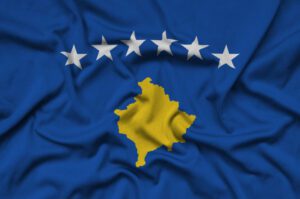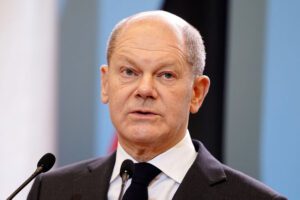
Oleksiy Goncharenko, a member of the European Solidarity faction, proposes to the Verkhovna Rada to recognize the state sovereignty and independence of the self-proclaimed Republic of Kosovo.
The corresponding draft resolution No. 7638 was registered on August 5, but its text is currently not available on the website of the Ukrainian parliament.
At the same time, the author of the document in his Telegram channel noted that back in 2010, the International Court of Justice recognized that the right to state sovereignty of Kosovo does not contradict the norms of international law, does not violate any resolutions and international acts.
“It’s not for nothing that 22 of the 27 EU member states, which we are striving for, have already recognized Kosovo. Kosovo is also recognized by the United States, Canada and the UK. Therefore, Ukraine’s consistent step will be the recognition of Kosovo’s state sovereignty and the expression of international support,” Goncharenko wrote.
At the same time, the parliamentarian stressed that “the situation between Ukraine and the L/DPR pseudo-republics is not the same situation as in Kosovo and Serbia.” “This is the moment when Kosovo really has the right to independence,” he added.
Serbia lost control of Kosovo territory after NATO intervention in 1999, but does not recognize Kosovo’s 2008 declaration of independence. At the same time, the northern part of Kosovo with a Serb ethnic majority, where many Serb refugees from the southern regions of the province also live, is not subject to the Kosovo authorities.
In 2016, the Association Agreement between Kosovo and the EU was signed; The republic is recognized by 97 UN member countries. Ukraine, in turn, has not taken any decisions regarding the legal recognition of Kosovo’s independence and regards the region as part of the territory of Serbia.
“It’s not for nothing that 22 of the 27 EU member states, which we are striving for, have already recognized Kosovo. Kosovo is also recognized by the United States, Canada and the UK. Therefore, Ukraine’s consistent step will be the recognition of Kosovo’s state sovereignty and the expression of international support,” Goncharenko wrote.
At the same time, the parliamentarian stressed that “the situation between Ukraine and the L/DPR pseudo-republics is not the same situation as in Kosovo and Serbia.” “This is the moment when Kosovo really has the right to independence,” he added.
Serbia lost control of Kosovo territory after NATO intervention in 1999, but does not recognize Kosovo’s 2008 declaration of independence. At the same time, the northern part of Kosovo with a Serb ethnic majority, where many Serb refugees from the southern regions of the province also live, is not subject to the Kosovo authorities.
In 2016, the Association Agreement between Kosovo and the EU was signed; The republic is recognized by 97 UN member countries. Ukraine, in turn, has not taken any decisions regarding the legal recognition of Kosovo’s independence and regards the region as part of the territory of Serbia.

German Chancellor Olaf Scholz says that Germany supports Ukraine and “acts decisively.”
“Our goal must be that Ukraine can defend its sovereignty, its freedom and its democracy. We support them in this. We are acting prudently and adapting to the current situation. And we are acting decisively,” he tweeted.
As reported, Finance Minister Serhiy Marchenko said last week that preparations had recently begun for the next EUR150 million loan from Germany, which will help support Ukraine’s macro-financial stability.
According to him, only in the second half of April, Germany received a EUR150 million loan to support small and medium-sized businesses, an agreement on which was reached back in March 2020.
“Minister Christian Lindner also noted that they are considering providing us with military support in the amount of EUR1 billion, but we expected from Germany no less financial support than that provided by the UK, Canada or the United States,” Marchenko said.